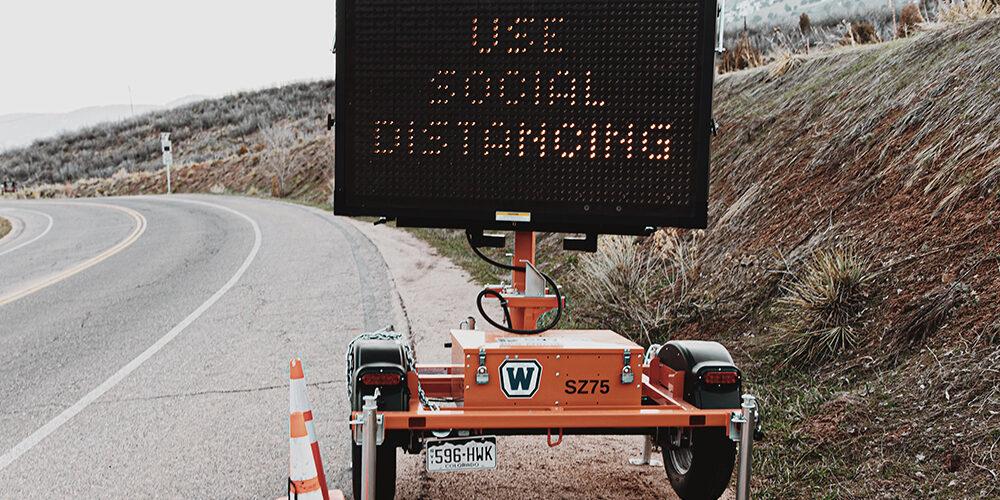It occurred to me the other day – as I, like so many others, worked from home due to the COVID-19 pandemic – how ironic it is that we dedicated two blogs to the subject of soul sickness. Our explanation of soul sickness is derived from two perspectives: 1.) the mania of becoming disconnected from self and 2.) a seeking pattern defined by “pushing” and “getting” behaviors.
The reason it’s so ironic is that a large percentage of the United States is “social distancing” in response to the COVID-19 pandemic. As a result, we have been unceremoniously ripped from our “seek, push, get” routines, and we are individually confronting varying levels of disconnection from self. It is a disorienting era, characterized by feelings of restlessness, irritability, and discontent. It’s not uncommon to hear:
“I’m bored!”
“This is driving me crazy!”
“I can’t wait for this to be over. I don’t know how much more I can take!”
These same feelings pop up in recovery literature. The Big Book of Alcoholics Anonymous has a section entitled “The Doctor’s Opinion”. In this section, William D. Silkworth, M.D. writes, “Men and women drink essentially because they like the effect produced by alcohol. The sensation is so elusive that, while they admit it is injurious, they cannot after a time differentiate the true from the false. To them, their alcoholic life seems the only normal one. They are restless, irritable, and discontented, unless they can again experience the sense of ease and comfort which comes at once by taking a few drinks”.
The parallels here are eerie. What about the ease and comfort of routines that keep us from sitting with ourselves? What about the ease and comfort of living fast and hard? What about the ease and comfort of materialism, Facebook, video games, Netflix, Tinder and never having to figure out what to do with our time? Our so-called “modern life” seems “the only normal one”. But is it really?
It doesn’t make sense to look down on people with substance use disorder when we are all, to some extent, caught in a cycle of seeking ease and comfort.
If the COVID-19 pandemic has anything to teach us, it’s that we are more alike than we ever imagined. And while there is nothing good about mass job loss, panic, and death, we do find ourselves confronted by an intriguing universal wake-up call.
On March 23rd, the Harvard Business Review published an article called That Discomfort You’re Feeling Is Grief. The author, Scott Berinato, talks about naming a feeling to better manage it, and turns to grief expert, David Kessler, for elucidation. Kessler says, “[We’re] feeling a number of different griefs. We feel the world has changed, and it has. We know this is temporary, but it doesn’t feel that way, and we realize things will be different”.
One of the things we’re grieving is our loss of normalcy – our routines and identity. Who are we without the industrialized motto, “keep grinding”? Who are we when we are forced to stop and sit with ourselves? The wake-up call of the COVID-19 pandemic asks, “Do we really want to return to who we were?” This is a crossroads at which we can learn something from the experience of people in recovery. After all, who can better understand these questions?
“Imagine, just for a second, being a person in early recovery, finally ready to stop using, ready to feel alive again, coupled with being full of fear,” Process Executive Director, Nicole White, writes. “Then getting out of a detox, entering into the world, and the COVID-19 pandemic is going on – isolating you more than you have been for years of active use, feeding all of your fears, pulling you back into negative thoughts – the darkness. What better excuse to use? Why get sober when the world is so dark?”
“What I have learned through all my years of being in recovery is that we walk through the darkness. In those moments when we feel like no one else would ever understand how deep our pain really runs – how confusing and conflicting this life can be – we crawl. Sometimes we cry and scream for someone to take the chaos away…for someone to make sense of it all. But they can’t. Only we can do that. Yes, of course, people can be there. They can support us. They can love us. But we must find our own peace”.
“In recovery, we are taught to take our pain and give it purpose. The source of the pain doesn’t matter. There is never a good excuse to stay stuck. Let me repeat: NEVER”.
“It is imperative that all humans ask, ‘What is this teaching me? What is the COVID-19 pandemic, isolation and stillness teaching me?’ Are we, in a sense, being asked by the universe to sit still? What are we meant to uncover in the stillness? Is the earth we so freely abuse in need of a deep breath? Does it need a break from our chaos? What we must learn from this is that one person can have an impact on an entire community. We, as a collective, must move forward differently”.
“We invite you to ask yourself, ‘What is this teaching me?’ What if we sit still long enough to realize nothing is supposed to be the same? Because it wasn’t working”.
Autumn Khavari/ Contributor
Nicole White/ Contributor



